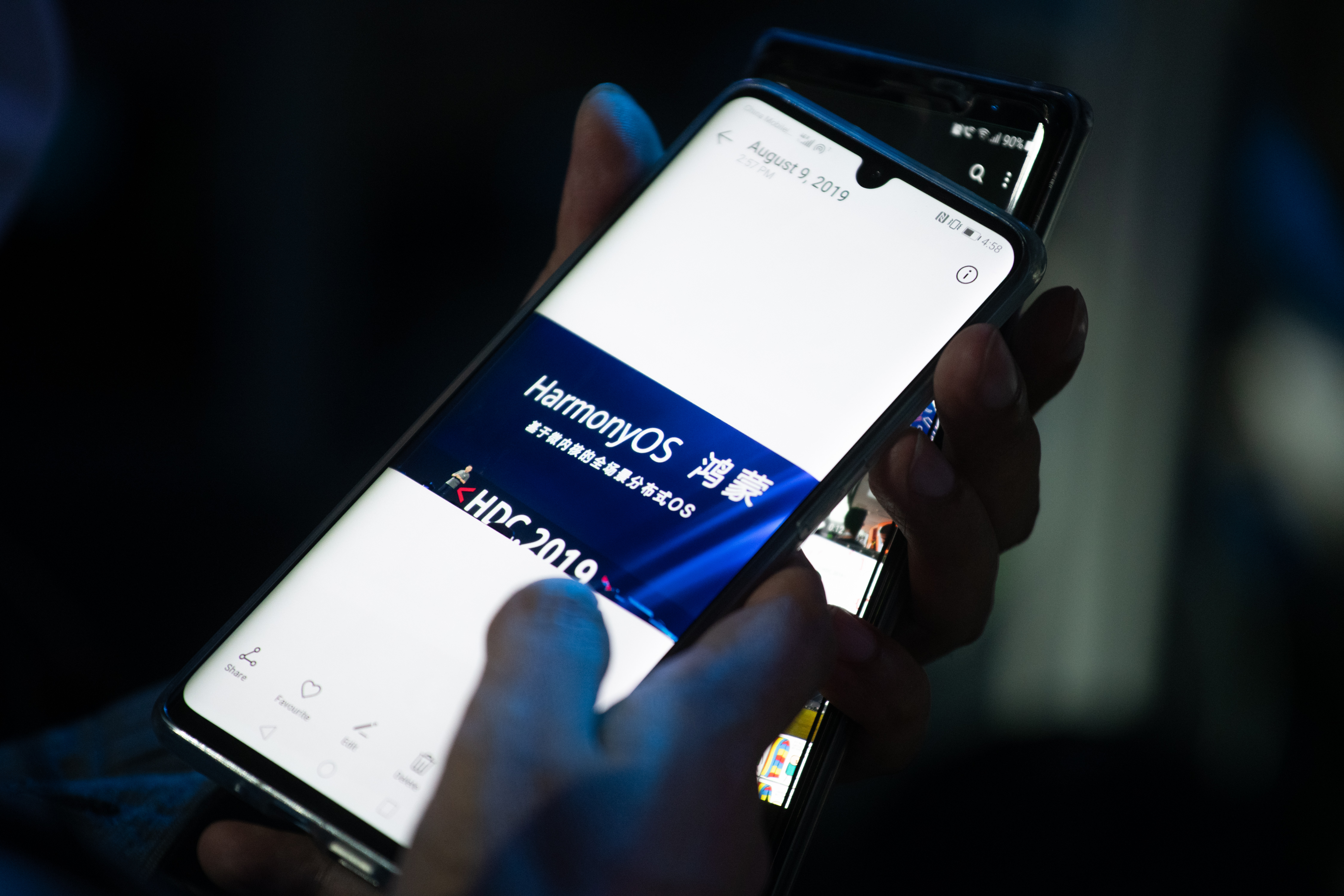Huawei Harmony: why the Chinese firm is launching an Android rival
New operating system will be ‘faster and safer’ than Google’s software, but won’t appear on smartphones immediately

A free daily email with the biggest news stories of the day – and the best features from TheWeek.com
You are now subscribed
Your newsletter sign-up was successful
Huawei has confirmed that it is developing its own smartphone operating system as the company begins to distance itself from Google’s Android software.
Announced at its developer conference in Dongguan, China, the new operating system will be used not only to power Huawei’s broad range of smartphones, but also other connected devices such as wearable tech and in-car infotainment systems.
Richard Yu, head of Huawei’s consumer business group, told attendees at the conference that Harmony, known as Hongmeng in China, is “completely different from Android and iOS”.
The Week
Escape your echo chamber. Get the facts behind the news, plus analysis from multiple perspectives.

Sign up for The Week's Free Newsletters
From our morning news briefing to a weekly Good News Newsletter, get the best of The Week delivered directly to your inbox.
From our morning news briefing to a weekly Good News Newsletter, get the best of The Week delivered directly to your inbox.
At first, the BBC says, Huawei will launch the operating system on smaller devices, such as connected speakers and smartwatches, for customers in the Greater China region.
Why is Huawei making its own Android rival?
Although Huawei has been successfully using Android operating systems since 2009, today’s announcement comes as little surprise.
In May, Google was forced to block Huawei’s use of the software after the US government placed the Chinese firm on the so-called Entity List, which contains nations that are deemed to pose a potential threat to America’s IT infrastructure.
A free daily email with the biggest news stories of the day – and the best features from TheWeek.com
Huawei being on the list means it is barred from buying technology from American companies without approval from the US government, says The Verge.
While Huawei is still able to use the Android operating system to power its smartphones, certain features, such as Google Maps and YouTube, will be blocked on future devices.
It has therefore developed its own operating system as a contingency plan in case the company’s access to Android is blocked completely.
However, it’s believed that Harmony has been in development “for a number of years”, The Daily Telegraph says, suggesting that Huawei had intended to create its own software ecosystem prior to its run-in with the US government earlier this year.
How is it different to Android?
Little is known about the Harmony system as the company has yet to announce when the software will launch on smartphones.
What is known, however, is that Harmony will mirror Android by taking the form of an open-source operating system, meaning third-party companies “can take the code and use it however they want”, the BBC reports.
Huawei has also said that Harmony will let developers create one version of their app, before “flexibly” deploying it “across a range of different devices”, the broadcaster adds.
At the conference, Yu claimed that Harmony would be “faster and safer” than the Android system, Engadget reports.
Huawei, however, intends to stick with Google’s software on its smartphones for the time being, the tech site says. But Yu insisted that the company could switch its phones over to the new system “at any time” in the event of its Android licence being revoked completely.
-
 5 blacked out cartoons about the Epstein file redactions
5 blacked out cartoons about the Epstein file redactionsCartoons Artists take on hidden identities, a censored presidential seal, and more
-
 How Democrats are turning DOJ lemons into partisan lemonade
How Democrats are turning DOJ lemons into partisan lemonadeTODAY’S BIG QUESTION As the Trump administration continues to try — and fail — at indicting its political enemies, Democratic lawmakers have begun seizing the moment for themselves
-
 ICE’s new targets post-Minnesota retreat
ICE’s new targets post-Minnesota retreatIn the Spotlight Several cities are reportedly on ICE’s list for immigration crackdowns
-
 Will AI kill the smartphone?
Will AI kill the smartphone?In The Spotlight OpenAI and Meta want to unseat the ‘Lennon and McCartney’ of the gadget era
-
 Has Google burst the Nvidia bubble?
Has Google burst the Nvidia bubble?Today’s Big Question The world’s most valuable company faces a challenge from Google, as companies eye up ‘more specialised’ and ‘less power-hungry’ alternatives
-
 How the online world relies on AWS cloud servers
How the online world relies on AWS cloud serversThe Explainer Chaos caused by Monday’s online outage shows that ‘when AWS sneezes, half the internet catches the flu’
-
 Is the UK government getting too close to Big Tech?
Is the UK government getting too close to Big Tech?Today’s Big Question US-UK tech pact, supported by Nvidia and OpenAI, is part of Silicon Valley drive to ‘lock in’ American AI with US allies
-
 Google: A monopoly past its prime?
Google: A monopoly past its prime?Feature Google’s antitrust case ends with a slap on the wrist as courts struggle to keep up with the tech industry’s rapid changes
-
 South Korea's divide over allowing Google Maps
South Korea's divide over allowing Google MapsTalking Points The country is one of few modern democracies where the app doesn't work
-
 Google avoids the worst in antitrust ruling
Google avoids the worst in antitrust rulingSpeed Read A federal judge rejected the government's request to break up Google
-
 Is AI killing the internet?
Is AI killing the internet?Talking Point AI-powered browsers and search engines are threatening the death of the open web